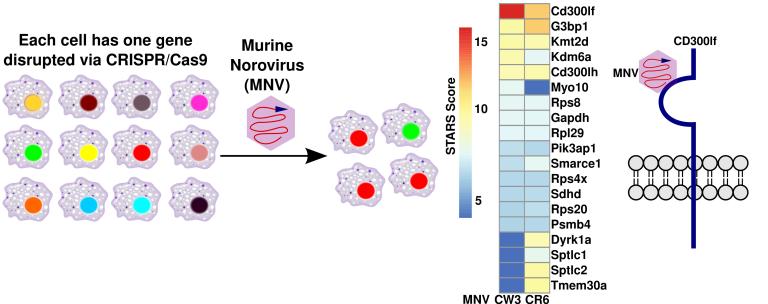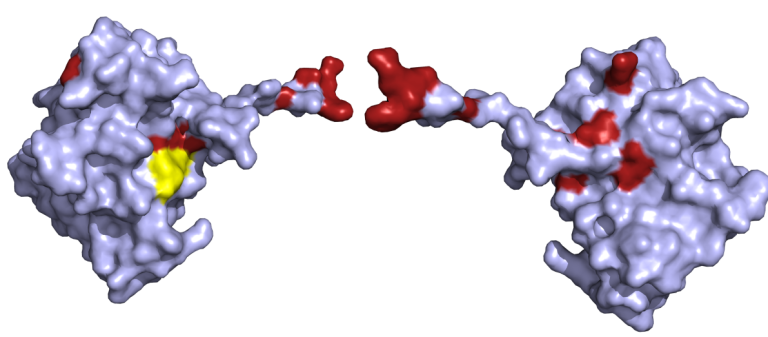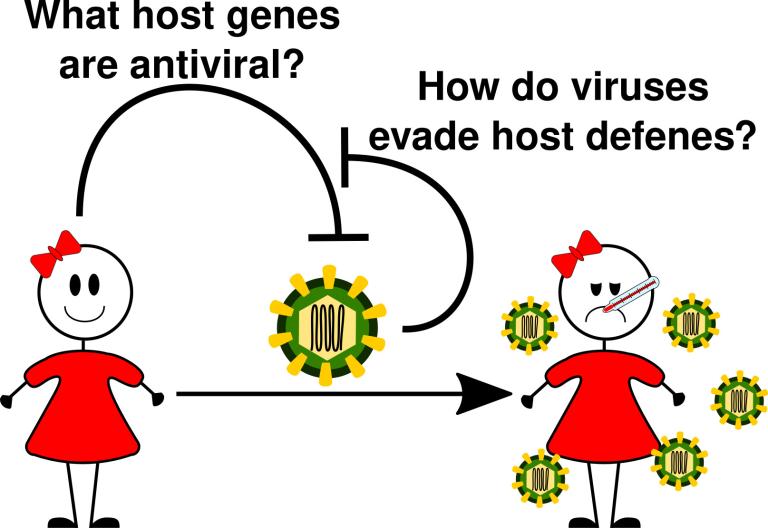The goal of the Orchard Lab is to have a more comprehensive understanding of host-pathogen interactions by leveraging functional genomic CRISPR/Cas9 screens.
We hope to identify novel vulnerabilities in a virus or bacterial life cycle which could represent a therapeutic target. Additionally, the Orchard Lab uses viruses as tools to better understand mammalian physiology and immune responses. We currently are investigating Norovirus, Influenza virus, and Enterovirus biology. We are trying to address several important questions.

How do viruses enter cells?
A key factor in determining the cells, tissues, and species a virus can infect is the ability of viral proteins to engage cellular receptors. We have a long standing interest in defining cellular receptors. Additionally, we are defining how cofactors regulate the ability of viruses to engage cellular receptors and enter into host cells. Our work in this area is to better understand viral tropism at a molecular level and to determine new therapeutic targets.

What host factors are viral restriction factors?
Viruses and host are locked in an evolutionary conflict. We are interested in uncovering antiviral mechanisms encoded in mammalian genomes. Identification of these host factors has been difficult due to redundancy in antiviral networks. We utilize a gain of function approach in addition to combinatorial genetic knockouts to identify unappreciated antiviral genes.
 Mapping of Viral Restriction Factor Activity
Mapping of Viral Restriction Factor Activity How do viruses evade and antagonize host defense systems?
Viruses have evolved sophisticated immune evasion genes to overcome host defense systems. However, many of these genes are poorly understood. We aim to identify how these immune evasion genes function and evolve.
